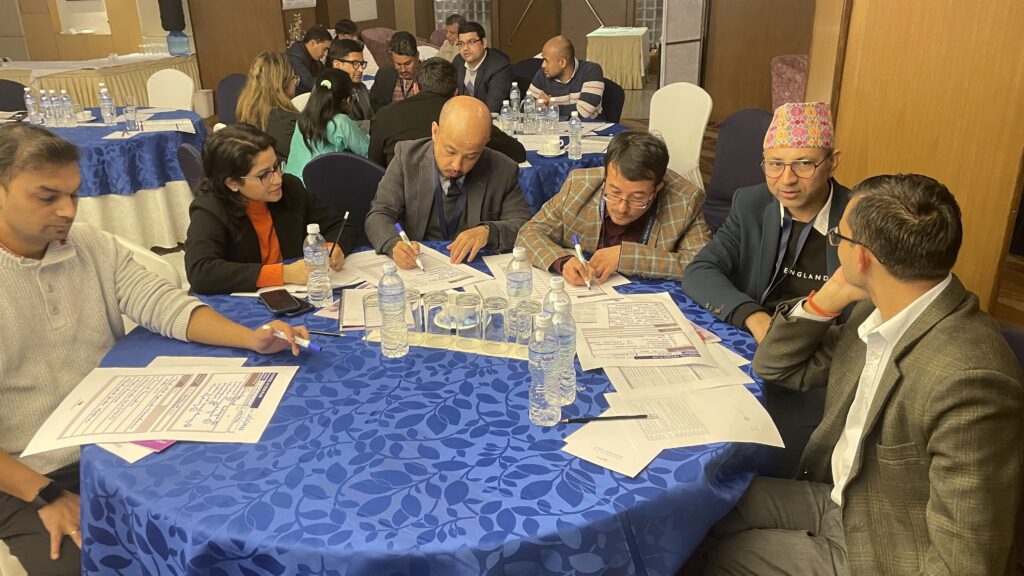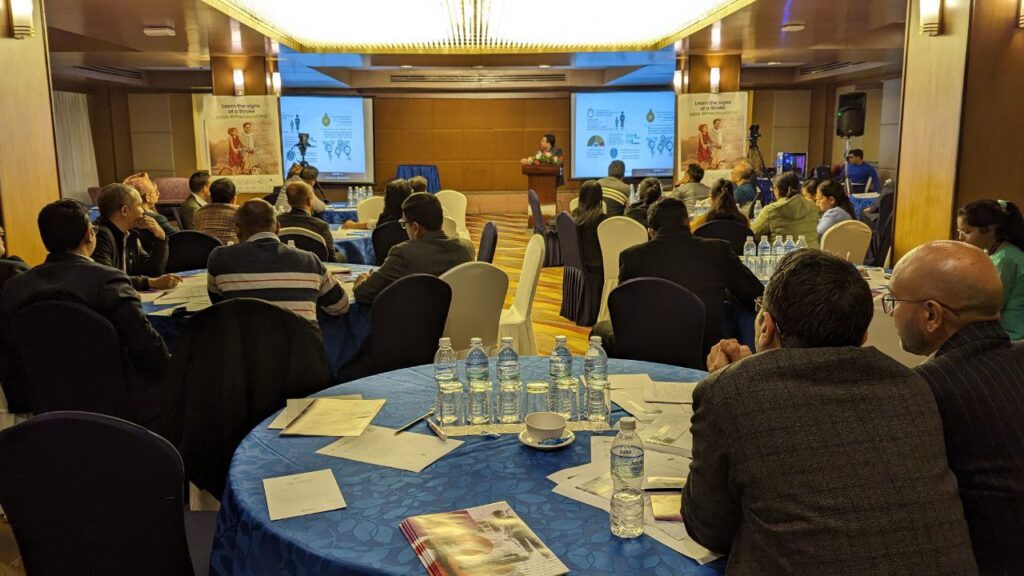Nepal’s first Stroke Team Leaders Symposium held on February 17th and 18th in Kathmandu was a resounding success, bringing together 70 physicians and nurses from 23 different hospitals from all over Nepal. The symposium was organized by the Nepal Stroke Association and University Hospital Heidelberg within the Nepal Stroke Project, supported by Hospital Partnerships.
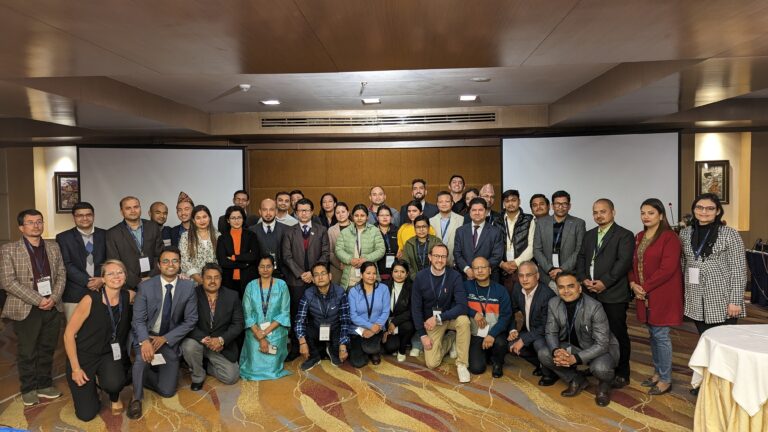
“We don’t need experts, we need someone who will lead and who will coordinate,” said Dr. Lekhjung Thapa. And this symposium allowed the stroke leaders to become those coordinators, who will lead their hospitals towards better stroke care.
The symposium was a great opportunity for the new stroke team leaders of different hospitals to unite and learn from each other’s experiences, providing a platform for the participants to network and share their “best practices”, which proved to be very inspiring.
The participants were able to learn from each other’s experiences and jointly to develop an action plan to reach the next level of stroke care.
THE SCIENTIFIC PROGRAM
The program of the Stroke Symposium held in Kathmandu on February 17th and 18th was packed with informative and engaging presentations on a wide range of topics related to stroke care. The symposium featured presentations and a “Hands-On-Training” by Rupal Sedani about the need for quality monitoring and RES-Q, and Dr. Avinash Chandra on the importance of quality monitoring. One of the highlights was Dr. Raju Paudel‘s presentation on the findings of a systematic literature review on stroke care in Nepal, which highlighted the current state of stroke care in the country and provided insights on the way forward.
Other highly regarded speakers covered important topics such as investigations for secondary stroke prevention (Dr Bikram Prasad Gajurel), transient ischemic attack (Dr Pankaj Jalan), and the importance of nursing in stroke care (Jessica Golenia and Nima Begli). Those discussions led to lively discussions at the highest scientific level. And of course Dr Lekhjung Thapa’s enthusiastic speech about key priorities in stroke care shouldn’t be missed.
The symposium also had a unique international perspective, with a presentation by Dr. Tamer Roushdy from Egypt, who shared the Egyptian experience in stroke care. Dr. Roushdy’s presentation was informative and engaging, providing insight into stroke care in a different setting and offering a fresh perspective on the opportunities that stroke care presents.
Overall, the program was well-rounded and informative, covering a wide range of topics and providing attendees with valuable insights and knowledge to enhance their stroke care practice.
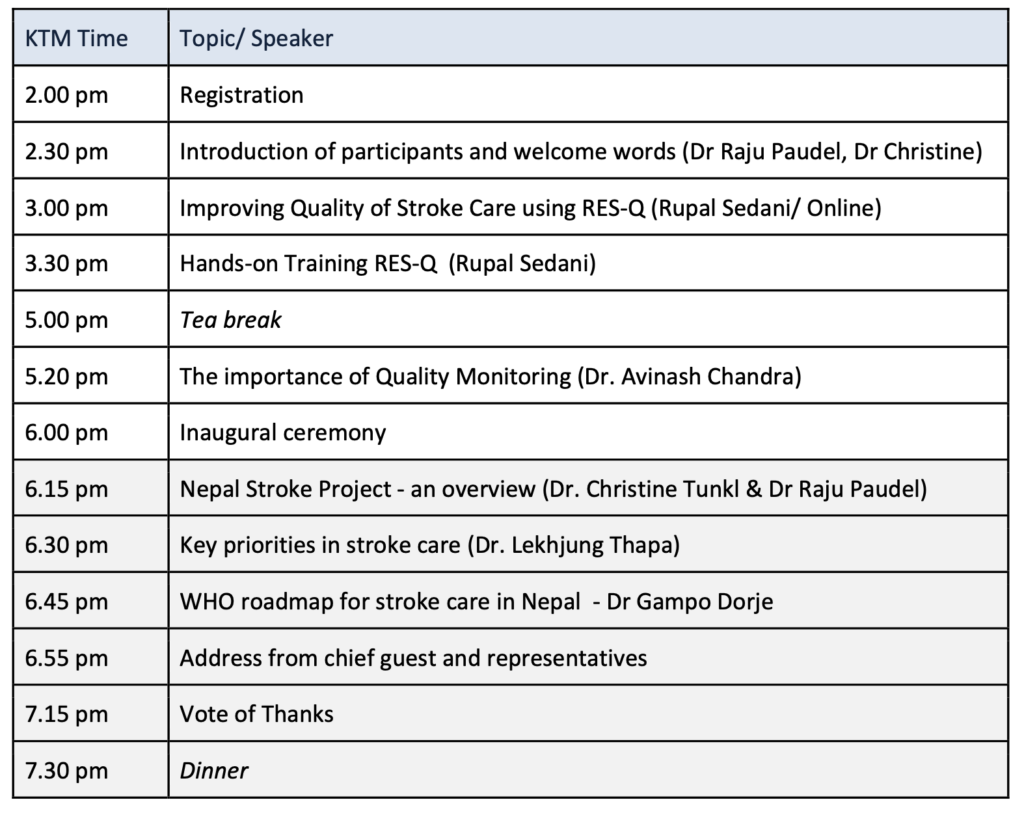
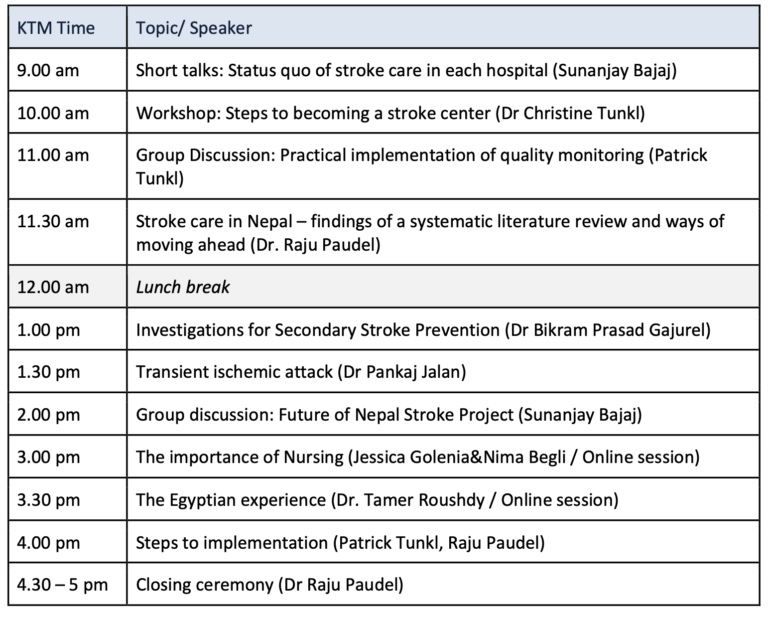
THE CEREMONY
The symposium was graced by some esteemed guests, including Dr. Phanindra Basal Prasad from EDCD, Dr. Krishna Paudel from MOHP Policy Planning, Simon Heinkele and Stephan Russek as representatives from the German Embassy in Kathmandu, and Dr. Gampo Dorje from WHO Nepal. The symposium also featured speeches by Professor Jeyaraj Pandian as the President-Elect of World Stroke Organization, Eva Schöning, the technical advisor of hospital partnerships, Professor Wolfgang Wick, Professor Christoph Gumbinger and Dr Dominik Vollherbst from University Hospital Heidelberg.
Dr. Gampo gave a warming speech about WHO-SEARO and the initiative now being taken in Nepal. Dr. Krishna Paudel from the Ministry of Health and Population also gave a speech, promising support for the stroke care initiative. Dr Russek, highlighted the strong support of the Nepalese health sector and was glad to see the focus shifting back to NCDs after the pandemic.
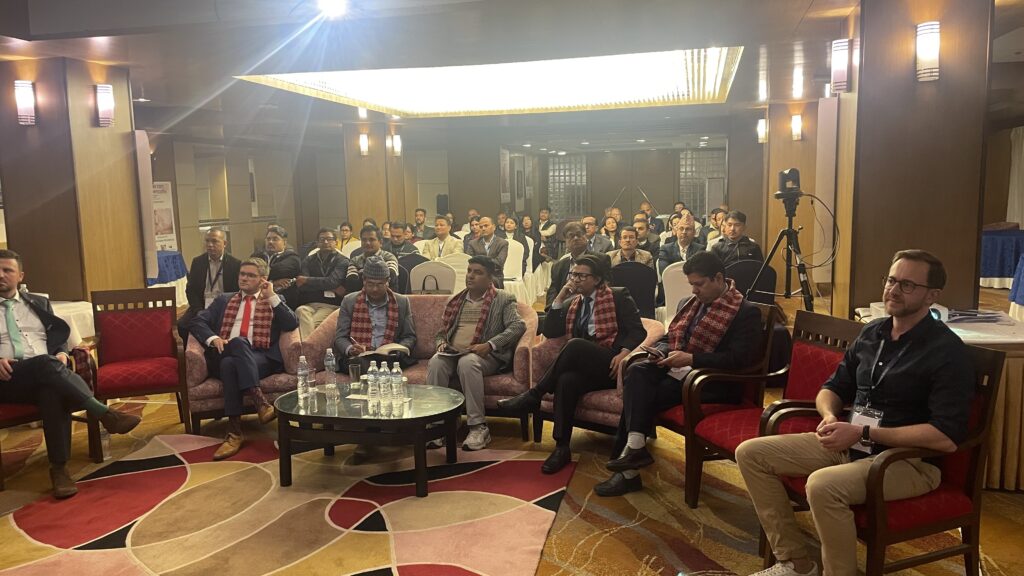
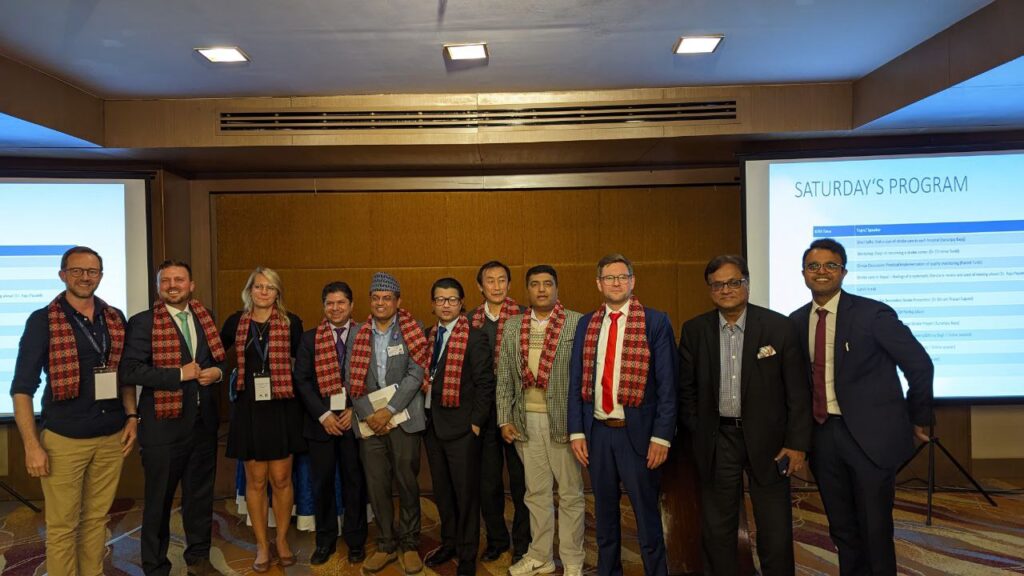
THE HIGHLIGHTS
“That is a special meeting, because we as participants have the chance to share our experiences,” said Dr. Bhupendra. The symposium was a great opportunity for the participants to be part of a network of 60 new leaders in stroke care.
Accordingly, the highlight for all of us was when all hospitals were presented. Participants expressed great satisfaction in being able to showcase their own achievements, and to learn from the successes of others in the field. This kind of networking and sharing of best practices is a crucial element of advancing stroke care in Nepal and participants felt that the Symposium was an excellent step in this direction. The symposium participants were able to develop an action plan to improve their stroke care services and build a strong network of stroke care professionals.
